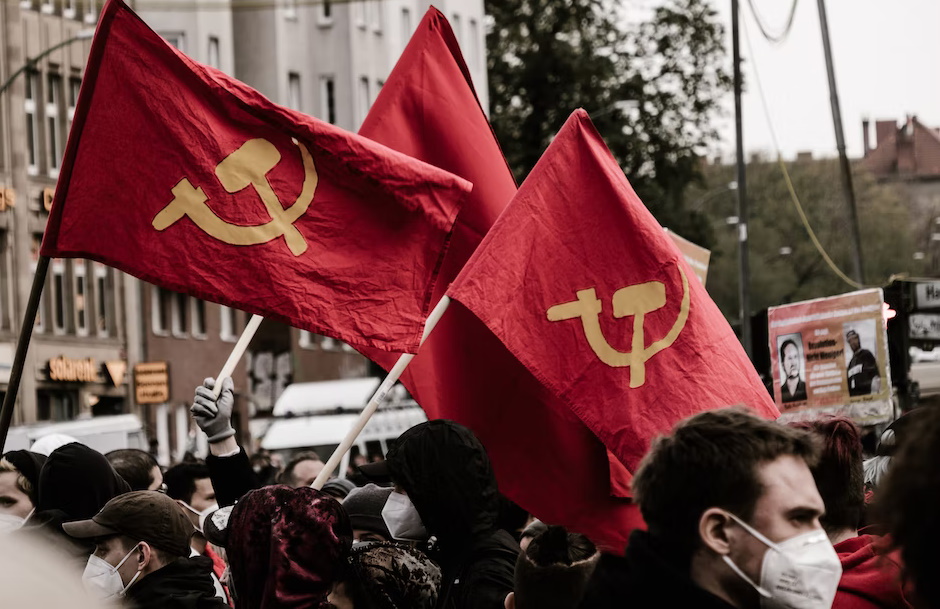This column was originally published in the Roanoke Beacon the week of June 16th, 2021.
Collectivism is an ideology that puts the rights of the collective over the rights of individuals. Socialism and Communism (Marxism) are collectivist ideologies.
In 1818, Karl Heinrich Marx was born in the German city of Trier as the son of Herschel Marx, a Jewish attorney, and Henriette Pressburg, a Dutch Jewish woman. His maternal Grandfather was a Dutch Rabbi and his paternal grandfather, Meier Halevi Marx, was Rabbi of Trier since 1723. His father converted from Judaism to Evangelical Protestantism. Karl Marx himself was non-religious.
He believed and taught that capitalism, defined as private ownership of the means of production, exploits and oppresses the workers and that ultimately, every capitalist society will end in class war. He saw the economy as the basis of any capitalist society and culture as its super-structure (Überbau). The capitalists and their economic base would have to be removed through revolutionary class war. The workers would take over society and socialism would become the new order defined as a condition in which all means of production are collectively owned. During Socialism, government would still be necessary, until the people learned to do things right and to govern themselves. Marx called this type of society, i.e. socialism without government, Communism. He expected the socialist revolution to occur in a highly industrialized capitalist state. However, no such revolution had occurred in any capitalist society by the end of the 20th century. Russia was mainly agrarian, and Marx did not see it as a proper candidate for socialist revolution.
This led the Italian Marxist Antonio Gramsci to develop his theory of “Cultural Hegemony”. According to Gramsci, the Überbau is an autonomous instrument of control and governance. He believed that a capitalist society could also be destroyed by destroying its culture. This was the beginning of Neo-Marxism. Marxists now began to study capitalist culture and to invent ways to change and destroy it through social engineering and propaganda.
Coming from this frame of mind, the Jewish Marxist Carl Grünberg started the Institut für Sozialforschung (Institute for Social Research) in Frankfurt in 1923 with financial help from Felix Weil, a Jewish-Argentinian Marxist, son of the world’s largest grain trader at the time. Early members of the Frankfurt School were György Lukács, Karl Korsch, Max Horkheimer, Theodor Adorno, Erich Fromm, Walter Benjamin, Ernst Bloch, and Herbert Marcuse – all Jewish, except for Adorno and Korsch. The basic approach of these Neo-Marxists was to analyze and critique cultures of capitalist systems and to develop a method how to dismantle them and their capitalist economic bases. This method is also known as “Critical Theory”.
While most of the Neo-Marxists were academic intellectuals, some were closer to revolutionary practice. E.g. Lukács served as People’s Commissar for Education and Culture of the Hungarian Soviet Republic under Béla Kun in 1919 and became known for his oppressive rule. Benjamin was the brother in law of Hilde Benjamin, Supreme Court VP of Communist Germany in 1946, aka “Bloody Hilde” and “Red Guillotine”.
After Hitler’s seized power in 1933, the Frankfurt School moved to New York City in 1935. Horkheimer, who had entered the US in 1934, negotiated its future role as part of Columbia University. Most of its protagonists emigrated to the USA before the Nazis had total control of Europe. Horkheimer, the main brain behind the “Critical Theory”, went to New York City and became director of the American Jewish Committee. After WWII Horkheimer went back to Germany but returned to the US to lecture at the University of Chicago between 1954 and 1959.
Adorno went to New York in 1938 and met with the Jewish Marxist sociologist Paul Lazarsfeld in New Jersey. In 1941 Adorno followed Horkheimer to Pacific Palisades (“German California”). In 1950, he published his seminal book “The Authoritarian Personality” in English. It became the roadmap to the systematic destruction of all authority in Western societies like the authority of the father, the teacher, the professor, the master, the employer, the boss etc.
Marcuse also headed for the USA in 1934. He became a US citizen and began to work for the Research and Analysis Branch of the Office of Strategic Services (OSS), the predecessor of the CIA, and after 1945, served as head of the Central European Section of the State Department. The R&A Branch of the OSS was indeed the cradle of US social science. Beginning in 1952, Marcuse lectured at Columbia University, the University of California in San Diego, and at Brandeis. He taught e.g. that Marxist tolerance must not include tolerating “oppressive speech”. Of course, the Marxist decides what that is. His teachings anticipated political correctness and censorship of free speech.
If you have ever wondered why the cities, universities, and institutions mentioned above became and continue to be hotbeds of American Neo-Marxism, now you know.

